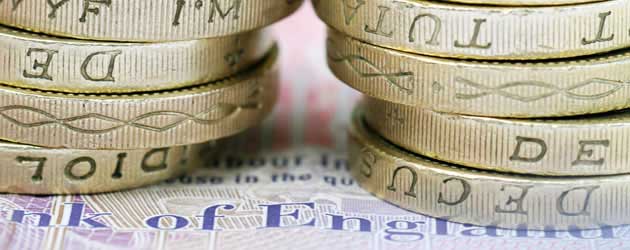
The Pound to Japanese Yen exchange rate (GBP/JPY) rallied by just under a cent earlier this morning in reaction to a slew of Asian data released overnight. The primary driver behind the Yen’s fall was the news that Chinese trade figures improved strongly during August, which was seen as positive for global risk appetite.
Defying expectations of just $20.00 billion, the Chinese trade surplus for August rose from $17.82 billion to $28.52 billion as exports increased by 7.2%. The robust Chinese trade report bodes well for the Chinese economy – the world’s second largest – and supports the argument that, according to recent data, the Chinese dragon’s wings are beginning to pickup speed again. This risk-boosting result drove investors out of the relatively low-yielding Japanese Yen and this contributed to Sterling’s gains.
The safe haven Yen was also hurt by news that Japanese GDP performed far better-than-expected at an annualised rate of 3.8% in the second quarter. Smashing forecasts of just 2.6%, the growth indicator surpassed that of the United States, 2.5%, and Eurozone, 1.1%, during the same time period. Once again the strong Japanese data was seen to negatively impact the Yen as risk sentiment favoured higher-yielding assets.
Another piece of headline-grabbing news that had an affect on GBP/JPY was the revelation that Tokyo will be hosting the 2020 Summer Olympic Games. Economists predict that holding the games will have a similar affect on the Japanese economy as the 2012 games had on the British financial system – a boost of just over 0.5%. The announcement makes it more likely that Japanese Prime Minister Shizo Abe will be able to carry out his next step of ultra-dovish “Abenomics”. Abe wishes to stoke economic growth, with an artificially low domestic currency, but keep the government’s debt-to-GDP-ratio under control by hiking consumption and corporate taxes. The tax rises are likely to devalue the Yen, which has decreased in value by over-13% already this year thanks to expansive Bank of Japan monetary easing programme, and therefore the Tokyo Olympic announcement was seen to restrict demand for the Japanese currency.
In other news the Chinese Consumer Price Index printed at 2.6%, down slightly from July’s 2.7%, and the Australian Home Loans total advanced by 2.4%.
The robust Chinese trade figures also had an important impact on the commodity-sensitive New Zealand Dollar as prospects for trade in the region increased. However, the ‘Kiwi’ sunk to a -0.7 cent defeat against Sterling on Monday morning. The Australian Dollar also tumbled by around -0.5 cents against the Pound.
Later on this week the Reserve Bank of New Zealand is expected to hint at a return to the Central Bank’s hiking cycle and this could bolster demand for the Antipodean currency.

Comments are closed.